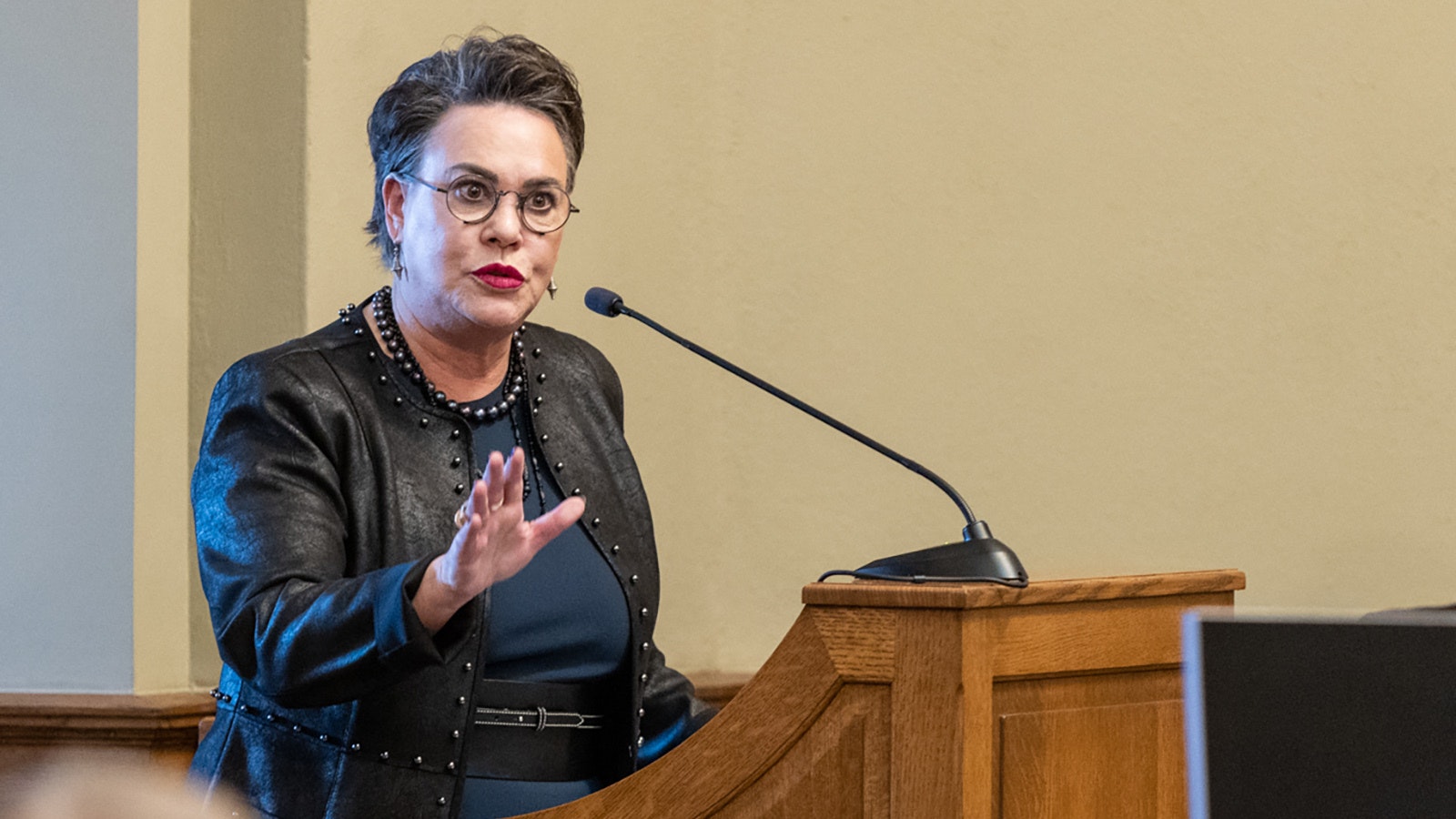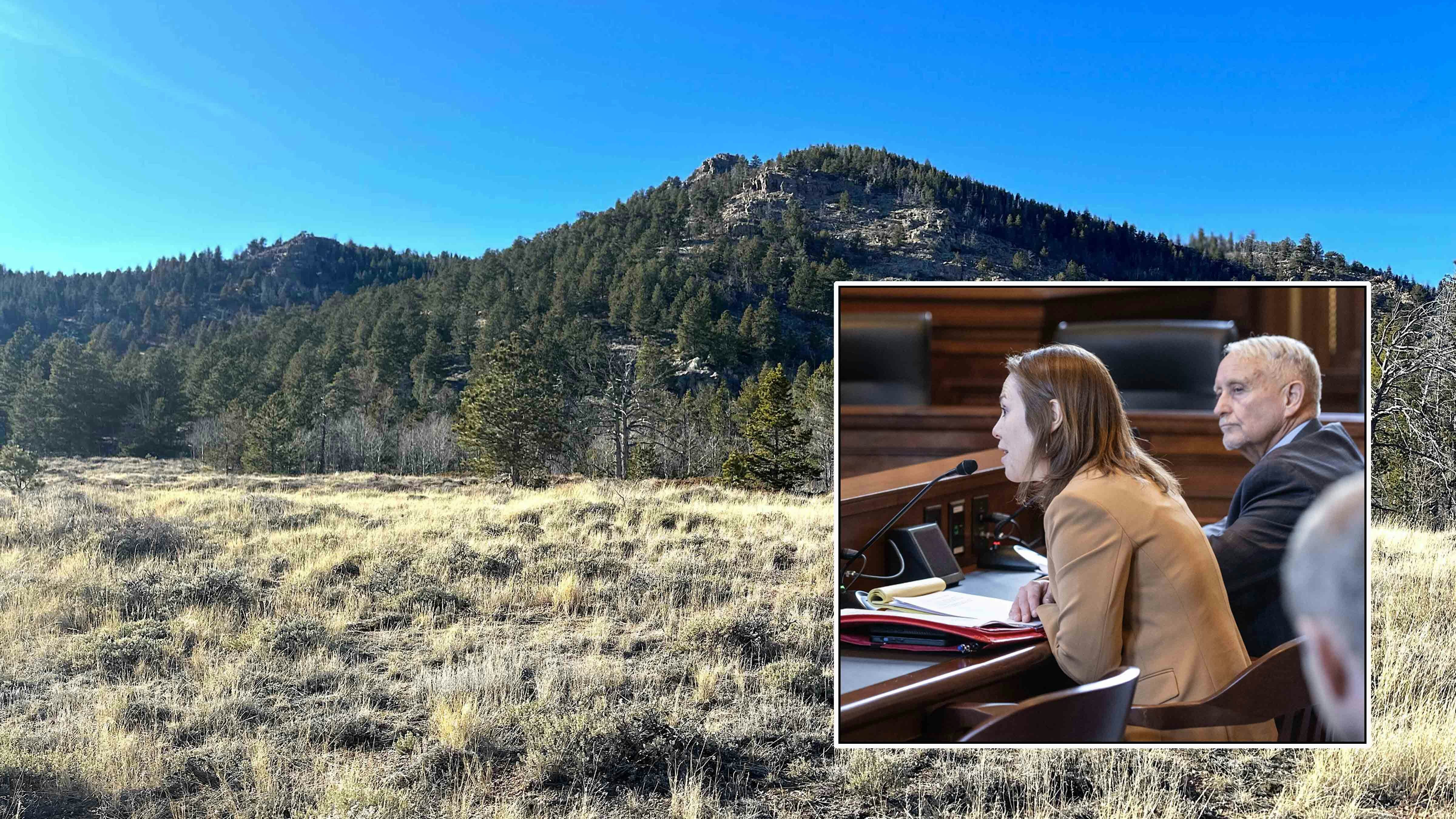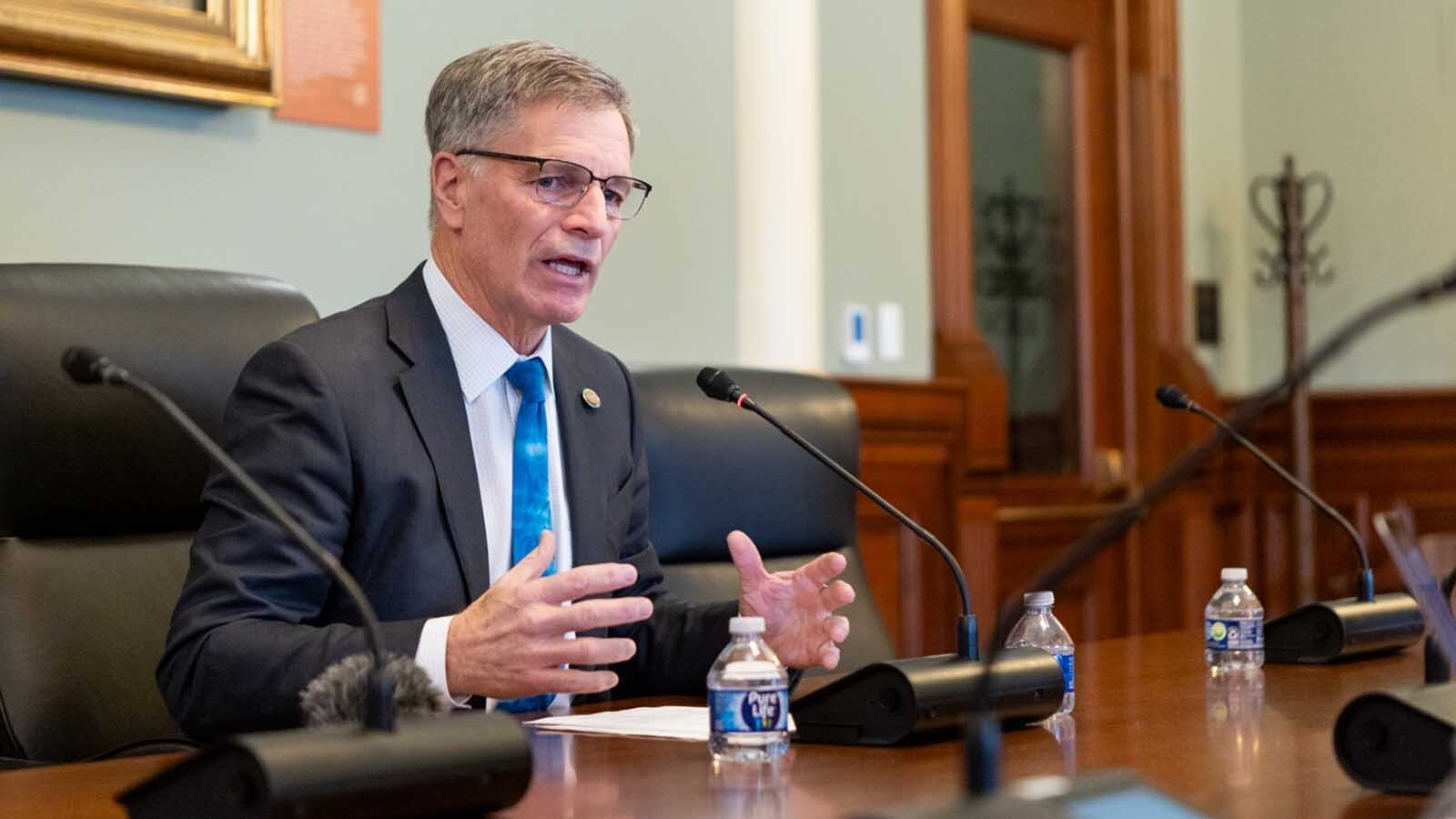President Joe Biden campaigned on a promise to end domestic oil and gas exploration and production, and among the efforts he’s taken to that end so far has been to postpone quarterly oil and gas lease sales on federal lands.
U.S. Rep. Harriet Hageman, R-Wyoming, introduced legislation to block the president or Department of the Interior officials from prohibiting or delaying new energy, coal or mineral leases or permits on federal lands.
The Protecting Our Wealth of Energy Resources (POWER) Act — Hageman’s first bill since taking office last month — would require approval of Congress before such directives can be enacted. It’s a companion bill to legislation U.S. Sen. Cynthia Lummis introduced in 2021 with support from a quarter of the Senate.
“Energy production is the heartbeat of Wyoming. It is important to my constituents that I am here to serve. Oil, gas, coal and mineral leasing and permitting directly affect our economy and the cost of our energy,” Hageman told Cowboy State Daily.
Companion Bill
U.S. Sen. Cynthia Lummis, R-Wyoming, originally introduced the legislation in the Senate with 16 co-sponsors, including Wyoming’s other Republican member of the Wyoming delegation, Sen. John Barrasso, along with Sen. Kevin Cramer, R-North Dakota, and Sen. Mike Crapo, R-Idaho.
In a statement, Lummis said the president’s actions are illegal and harm consumers.
“We have borne witness to the negative impacts of these policies through record-high gas prices and increased prices on goods and services we rely on every day,” Lummis said.
Barrasso, in a statement, called the administration’s actions “disastrous” and said Lummis’ bill would protect jobs.
“Since Day One, President Biden has been clear about his plan to end the use of coal, oil and natural gas,” Barrasso said. “These affordable and available sources of energy fuel our way of life in Wyoming and across the West.”
In The Courts
Immediately after taking office, Biden issued Executive Order 14008, which indefinitely paused new federal oil and gas leasing on federal lands.
The Biden administration has issued the fewest acres for lease sales of any administration since the Harry Truman administration during World War II.
Nearly half of all Wyoming acres are federally owned, and most oil and gas development in the state is on federal land.
More than a dozen states have sued over the Biden administration’s actions, arguing the federal government is violating the Mineral Leasing Act of 1920, which requires the federal government to hold quarterly lease sales in every state where “eligible lands are available.”
Wyoming, along with the Western Energy Alliance and Petroleum Association of Wyoming — petroleum industry organizations — sued the administration separately.
Last September, U.S. District Judge Scott Skavdahl of Wyoming rejected the plaintiffs’ arguments.
The three plaintiffs didn’t appeal Skavdahl’s decision and instead launched another lawsuit over the delayed oil and gas lease sales. Seventeen environmental groups, including the Powder River Basin Resource Council, are now intervening in the suit to defend the Biden administration’s delays.
Costly Litigation
Hageman said that if the efforts are successful, they would prevent this kind of extensive litigation.
As of the end of December, Hageman said, the administration has issued 106 executive orders, which doesn’t include administrative actions — none of which required any legislative process.
“Action by litigating is far more costly and time consuming than action by legislating,” Hageman said. “This bill would put power back in the hands of the elected representatives in Congress and could make this lawsuit unnecessary.”
In a statement announcing the introduction of her bill, Hageman also remarked on how the administration’s restriction on the development of resources has driven up prices for the consumer. She told Cowboy State Daily the bill, if passed, would go a long way to addressing those concerns.
“As I travel the state – whether hosting a town hall or meeting with Wyomingites one on one — the biggest concerns are always about how much liberty the federal government has taken from them and how expensive everything has become over the last two years,” Hageman said.





